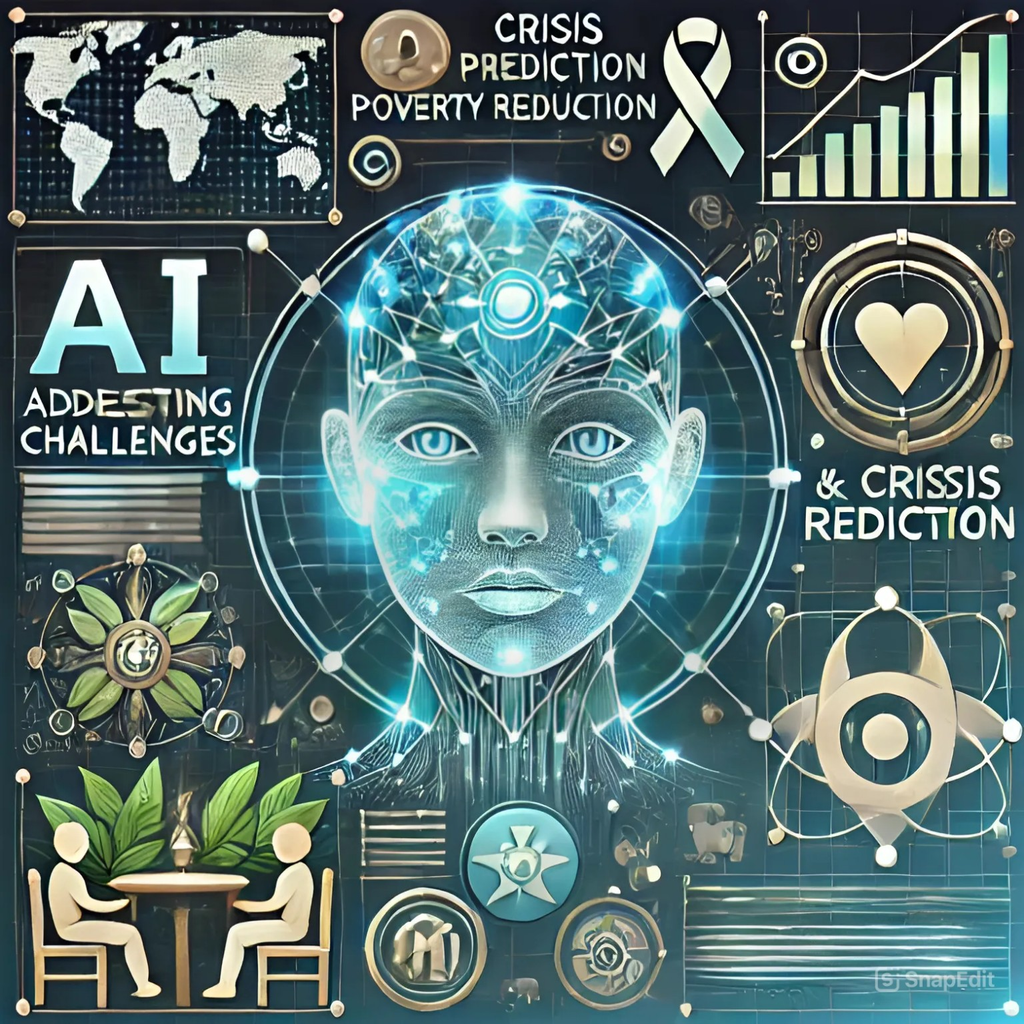Artificial intelligence (AI) has become a key tool in addressing global-scale social problems. From crisis prediction to resource management and developing effective poverty alleviation strategies, AI’s analytical capabilities enable innovative and efficient solutions.
AI in Crisis Prediction
AI’s ability to analyze vast datasets and forecast events is vital for preventing social, economic, and environmental crises.
- Predicting Natural Disasters
Weather Forecasting: AI analyzes meteorological data to predict hurricanes, floods, and droughts.
Risk Assessment: Machine learning algorithms identify regions most vulnerable to natural disasters.
Evacuation Planning: AI models scenarios to help design effective evacuation strategies.
- Identifying Social Crises
Social Media Analysis: AI detects trends that indicate growing social tensions.
Migration Prediction: Algorithms analyze demographic data to forecast migration waves caused by economic or environmental factors.
Conflict Early Warning: AI studies geopolitical data to predict potential military conflicts.
AI in Poverty Alleviation
AI optimizes processes aimed at reducing poverty by providing accurate data for decision-making and ensuring efficient resource allocation.
- Distribution of Humanitarian Aid
Needs Assessment: AI identifies regions most in need based on demographics and economic indicators.
Logistics Optimization: Algorithms streamline the delivery of food, water, and medical supplies to crisis areas.
- Job Creation
Training Programs: AI develops personalized training courses to enhance skills.
Identifying Economic Potential: Algorithms analyze resources and opportunities for creating new industries in specific regions.
- Microfinance
Creditworthiness Assessment: AI evaluates risks and opportunities for providing microloans to underprivileged populations.
Fighting Corruption: Algorithms ensure transparency in financial aid processes.
Real Examples of AI in Action
- Google AI for Social Good: Projects for predicting natural disasters, such as floods in India.
- UNICEF Innovation Fund: Using AI to analyze data on children living in poverty.
- TOMODACHI Initiative: Developing AI-based solutions for youth training and employment.
Benefits of Using AI to Address Social Problems
Speed: Algorithms process large datasets in real time.
Accuracy: AI minimizes human errors in analysis.
Efficiency: Resources are optimized, and costs are reduced.
Accessibility: AI tools can be adapted for various regions and problem scales.
Challenges and Future Prospects
Despite its advantages, using AI for social issues comes with challenges:
Data Quality: AI depends on accurate and complete data.
Ethical Concerns: The use of personal information must comply with privacy standards.
Technological Divide: Poorer regions may have limited access to AI infrastructure.

